| Umělec 2009/2 >> Performing the Performative. Gini Müller : Possen des Performativen. Book Review Theater, activism and queer politics 184 pages Vienna: Turia + Kant, 2008 | Просмотр всех номеров | ||||||||||||
|
|||||||||||||
Performing the Performative. Gini Müller : Possen des Performativen. Book Review Theater, activism and queer politics 184 pages Vienna: Turia + Kant, 2008Umělec 2009/201.02.2009 Meri Disoski | Meri Disoski | en cs de |
|||||||||||||
|
Gini Müller delves into forms of change and intervention in theater through varying manifestations of public and collective uprisings and protest in her book “Possen de Perfomativen” (The Posse of the Performative). The foundation for Müller’s conflict with forms of political action is set in post-structural, post-dramatic and feminist discourse.
The author explains the dual meaning of the book title, “Posse” in the introduction. The Latin verb “posse” represents the power of trade, or operations as “political subjectivity of the multitudes, as a mob or a pack,” according to Antonio Negri and Michael Hardt. In German, the term more closely ties theater and politics together with burlesque and humorous places, and is related to the word for buffoon. Theatrum posse would therefore conclusively mean “to create a hoax, a transversal, critical ‘bastard’ and to play the role of a non-docile body or to link together.” Müller briefly outlines the history and theory of the performative. The author’s scope spans the Situationist International, begun in 1957, and the primary procurement methods of public space, the Derive, the 1968 movement of forms of theater and performance, with obligatory consideration of Uniferkelei, the university mess and shenanigans at the University of Vienna, up to the Communications Guerilla of the 1990s, which includes “practices and techniques as well as subverting, cross-dressing, happenings, invisible theater, cake tossing, image-dirtying and the creation of fake homepages.” Müller’s reflection on the term performative starts with an allusion to Nietzsche, who set in motion the discussion of the meaning of the performative process. John Austin’s speech act theory is referred to by performative theorists (foremost for the success of speech act interests). Post-Structuralists, such as Deleuze, Guattari, Derrida, and Butler, focus their methodologies on the immanent and subversive potential of transposing contexts, especially in aspects that “lead to failures of speech acts.” Müller devotes the second section to the terms theatrum gouvernemental and theatrum posse, two terms coined for opposite practices. The trouble is these two forms serve the same terrain and can take place on the same level globally or locally. Müller attempts to explain theatrum gouvernemental as a mass production strategy that reaches into public spaces by drawing a correlation between Foucault’s “domination techniques and the practices of ‘self regulation.’” The FPÖVP political coalition, which was in power in Austria from 2000 until 2006, designated the author as an ‘authoritarian mechanism’ at her theatrum gouvernemental production. The 2005 production of a great jubilee celebrating 60 years since the end of the war, 50 years of a constitution, 50 years of Austrian radio, and ten years of the EU was used as an example. The “Actor of the multitudes” would develop varying techniques and methods in the realm of theatrum gouvernemental and theatrum posse. By these means, any opposition against the state could loose its meaning. An important example for the local development of theatrum posse is the Ernst Kirchweger Haus. EKH, or Volxtheater, was founded by “political activists interested in theater” who wanted to “make theater a vessel for activism.” The concept consisted of a collective, anti-hierarchical political focus that was clearly anti-racist, anti-sexist, and anti-nationalistic. Müller reported on how the Volxtheater actors experimented with demonstrating against the government when it changed in February 2000 by taking their show to the streets—an “art of the protest wave against the ÖVP/FPÖ Government.” The next year saw the establishment of the VolxTheater Caravan, allowing the show to tour internationally. The author explains that the first tour went from Austria, through Slovenia and to Italy where the G8 Summit was taking place in Genoa. The arrest of 25 caravan activists was omitted. Further forms of theatrum posse global are visible in movements critical of globalization, such as the strategies of the Sans Papiers, migration politics activists and Kanak Attack. The third section considers the ‘queering’ of heteronormative theater and presents queer politics similar to those seen in Riot Grrrls, Pink Block and Transgender Warriors. Müller’s book is a good read in which she presents theatrical science and philosophical theoretical approaches. The many practices that fall under the umbrella of “Possen des performativen” profit from Müller’s theater and political experiences, such as those from the Volxtheater and the Volxtheater Caravan. Ad Posse: Theater and politics meet in the term ‘posse’ as a playground of the real, the possible, the comical and the performative. The creative, anarchistic, theatrical conflict and antagonism are found in the verb, which enables people performative ability. Posse refers fundamentally to the performative theatrical-political power of action. The performative subversion of the Theatrum Posse touches upon a queered possibility of criticizing representations and power relationships, shifting contexts and rise up through one’s own queer speech actions. ad Volxtheaterkarawane: The creation of counter-publicities through media projects, discussions and Volxtheater doesn’t mean that making pictures and depicting of predecessors is bound to actions with political projects, concrete requirements and goals. Many attempts fall flat or confirm prejudices of well-intended education of accumulative production of pictures. The level of quality is enhanced with romantic theory and practical chaos and becomes to some extent comprehensible as the worth of the experience and the experiments, exchange, and contentions are tried out in practical organizational forms. At the end of the project the important questions arises: What does one’s own action mean? How can networking, cooperation and political organizations be improved? How can agents of politics, patriarchal power-holders and repetition of hierarchical structures be prevented? How effective is the agitation of political groups, the requirements of capital, state and imposed patriarchy as a function in the system which is usually considered only as an itchiness. Are there possibilities for change without constantly banging ones head against the wall or getting bopped on the head by the state? And how can the “posse” obtain its potential power? Ad Queer: Interest in others and acknowledgment of how people differ from one another are at the base of my theory of Theatrum Posse as well as Queer-Theory. The other is bound together with the other actors and viewers. Judith Butler and others have shown in theory and in practice that the deconstruction of identity does not need to mean the abolition of politics. The postmodern is falling back into private lives, and the performative subversion of cross-dressing and parties is tapering. Politics as the sphere of business and of the wielding of power must always be constructed anew and tried out. In this context the city, the stage and other places are important public spaces of conflict.
01.02.2009
Рекомендуемые статьи
|
|||||||||||||
|
04.02.2020 10:17
Letošní 50. ročník Art Basel přilákal celkem 93 000 návštěvníků a sběratelů z 80 zemí světa. 290 prémiových galerií představilo umělecká díla od počátku 20. století až po současnost. Hlavní sektor přehlídky, tradičně v prvním patře výstavního prostoru, představil 232 předních galerií z celého světa nabízející umění nejvyšší kvality. Veletrh ukázal vzestupný trend prodeje prostřednictvím galerií jak soukromým sbírkám, tak i institucím. Kromě hlavního veletrhu stály za návštěvu i ty přidružené: Volta, Liste a Photo Basel, k tomu doprovodné programy a výstavy v místních institucích, které kvalitou daleko přesahují hranice města tj. Kunsthalle Basel, Kunstmuseum, Tinguely muzeum nebo Fondation Beyeler.
|















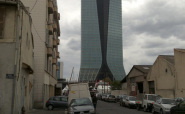

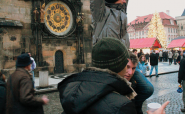
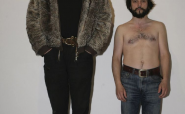
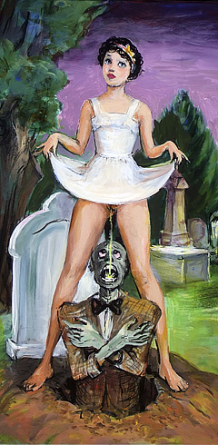






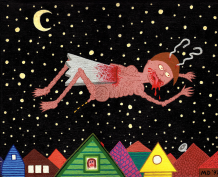




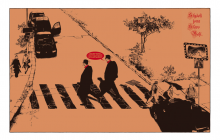
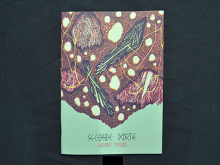

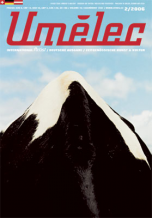


 We Are Rising National Gallery For You! Go to Kyjov by Krásná Lípa no.37.
We Are Rising National Gallery For You! Go to Kyjov by Krásná Lípa no.37.
Комментарии
Статья не была прокомментированаДобавить новый комментарий